He Walked from a Ugandan Refugee Camp to the NBA Draft—Khaman Maluach’s Emotional Journey
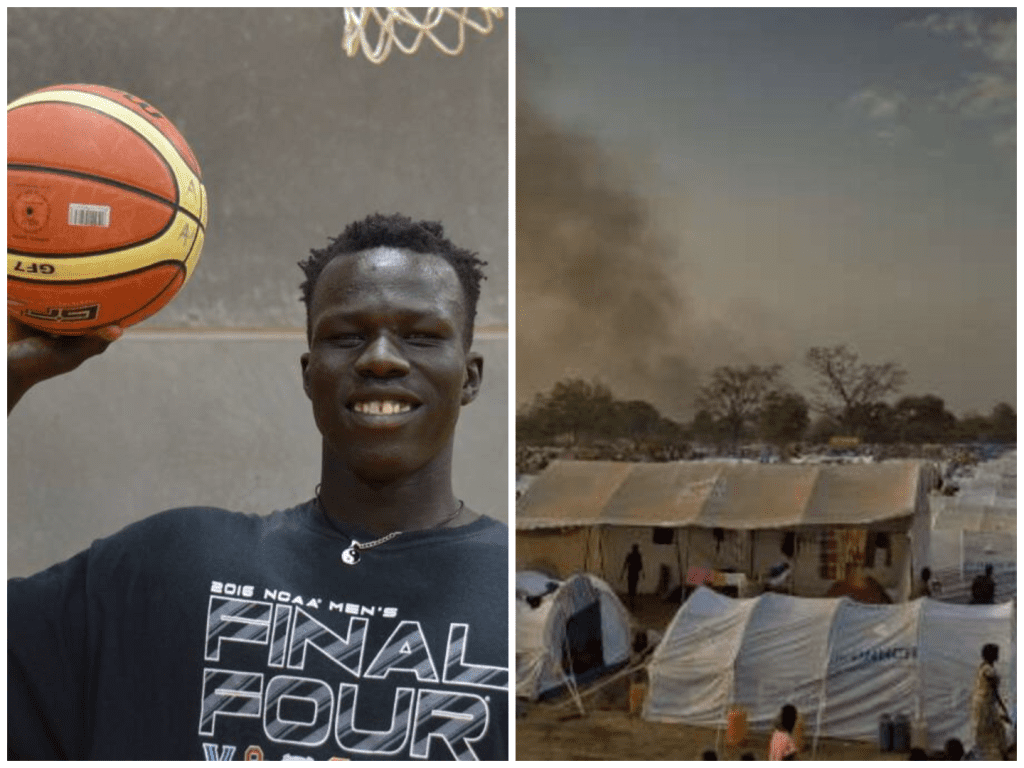
It’s rare that a person’s life resembles a movie script this much. Khaman Maluach’s rise from refugee camp to NBA draft stage is raw and powerful. He was born in Rumbek, South Sudan, then fled violence and grew up in a Ugandan refugee camp. He didn’t pick up a basketball until he was 13. Fast forward to 2025—he’s a first-round pick, tears in his eyes, representing the hopes of an entire continent. His story isn’t just about talent; it’s about survival, resilience, and the human spirit refusing to stay down.
Raw Beginnings and Incredible Growth
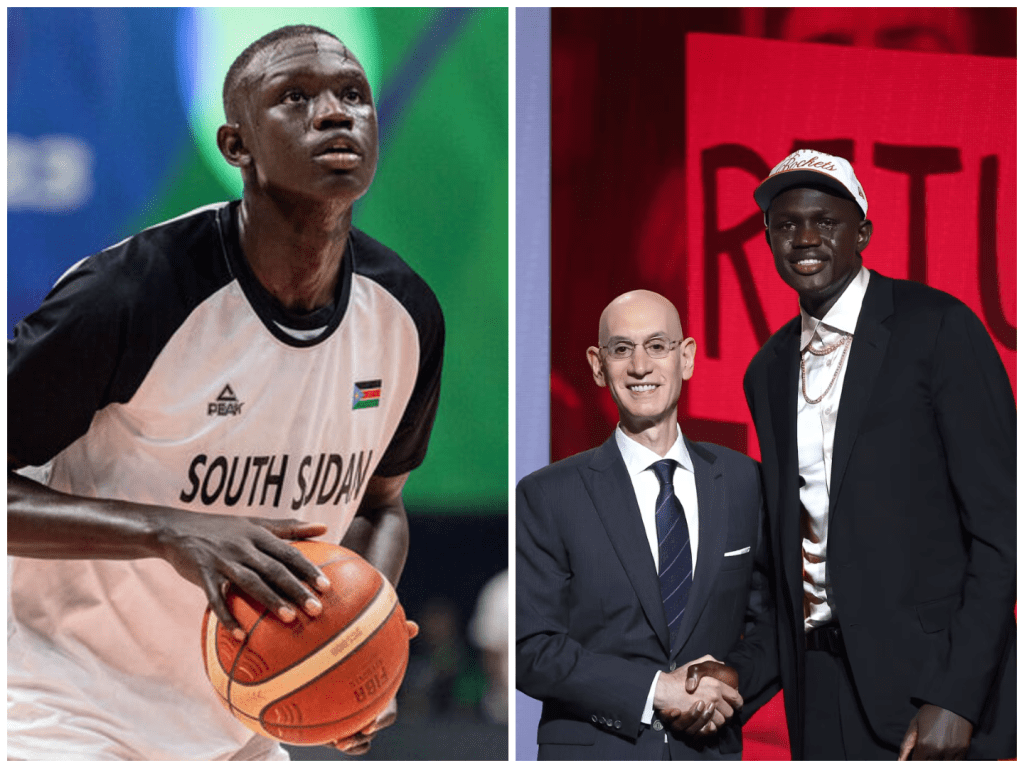
Khaman Maluach’s journey starts in a place most of us can’t imagine. Born in 2006 in Rumbek, South Sudan, his early years were shaped by violence. His family fled to Uganda’s Kawempe neighborhood, seeking safety and stability. Life there was tough. Basic needs were uncertain. Dreams were fragile. As he grew tall—eventually reaching 7-foot-2—he wasn’t a basketball star; he was a quiet kid in a tough world. He supported Manchester United, played soccer, and wondered what could come next.
In 2019, a random moment changed everything. A motorcycle taxi rider told him, “Try basketball—you’re tall.” He had never even held a basketball. But a few years later, he’s playing in an Olympic game with Team South Sudan. Fast forward again, and he’s in Duke’s Final Four run. That’s not normal. That’s not expected. That’s not ordinary.
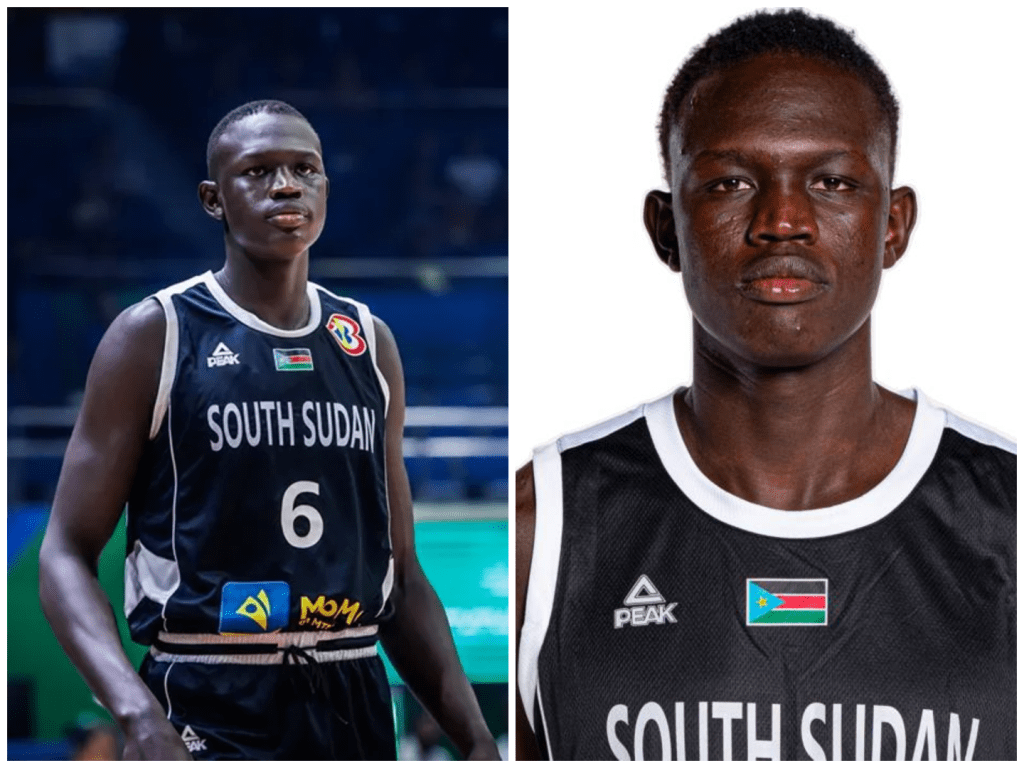
Maluach joined NBA Academy Africa in Senegal, then was drafted into the Basketball Africa League. In 2023, at age 16, he became the youngest player in the FIBA World Cup and helped South Sudan in the 2024 Paris Olympics, even challenging Team USA. Then came Duke—a one-year stint averaging 8.6 points, 6.6 rebounds, and 1.3 blocks with 71 percent shooting. By the season’s end, he was a Defensive anchor, ACC All-Rookie, and stormed onto NBA radars.
And yet, that’s not the soaring peak—it’s the setup for so much more.
Draft Night: Tears, Triumph, and What It Means
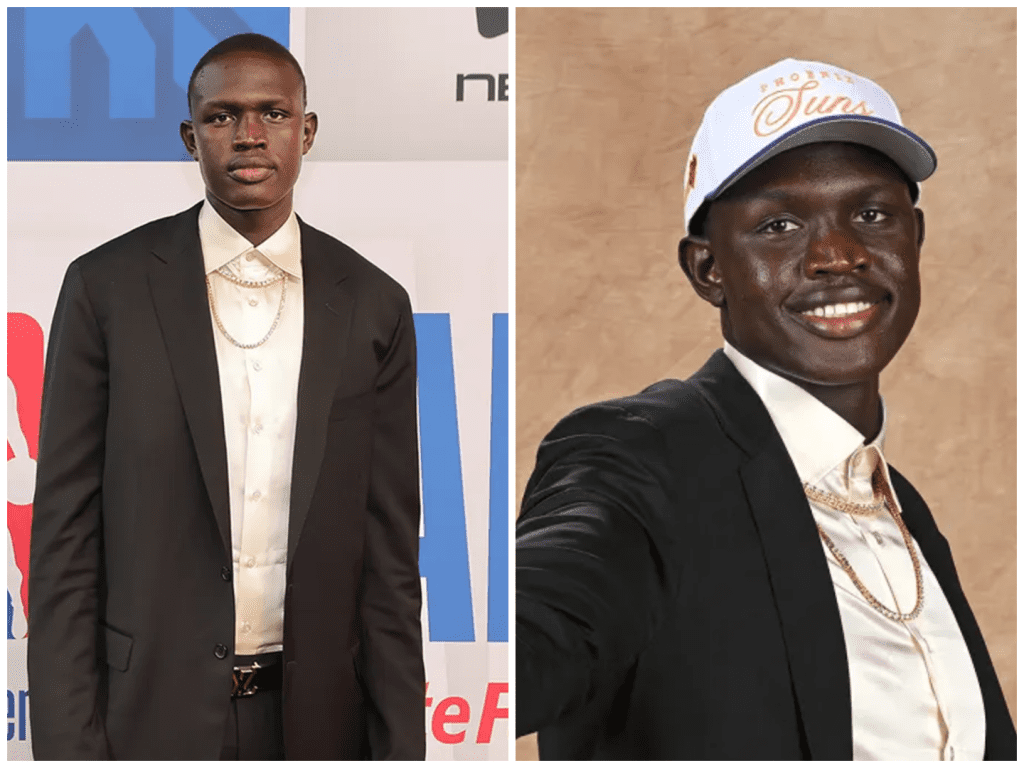
Draft night can be electric, chaotic, breathtaking. For Khaman, it was life-stopping. Cameras captured him bowing his head, quiet tears falling as his name echoed across the Barclays Center. He was the 10th pick, traded to Phoenix after being selected by Houston—part of the Kevin Durant deal. Even NBA Commissioner Adam Silver paused to reflect on his unique path: from refugee to NBA Academy Africa to Duke starter.
He told reporters it feels surreal, emotional. “I tell kids sometimes it’s OK to be delusional about your dreams—and then they happen,” he said. With an upright flag brazenly waving across his jacket, he said, “I’m here representing the whole continent of Africa.” He’s right. He is.
But the road won’t get smoother. No matter how triumphant the moment, bureaucratic problems loom like shadows. As a South Sudanese national, he faced visa revocations under U.S. policy targeting his country. His travel to Brooklyn and future NBA travels, like Canada road games, must clear serious red tape. The Phoenix officials, Duke administration, and even NBA’s international operations are working overtime to keep the path open. They know talent isn’t just talent—it’s fragile. It needs protection.
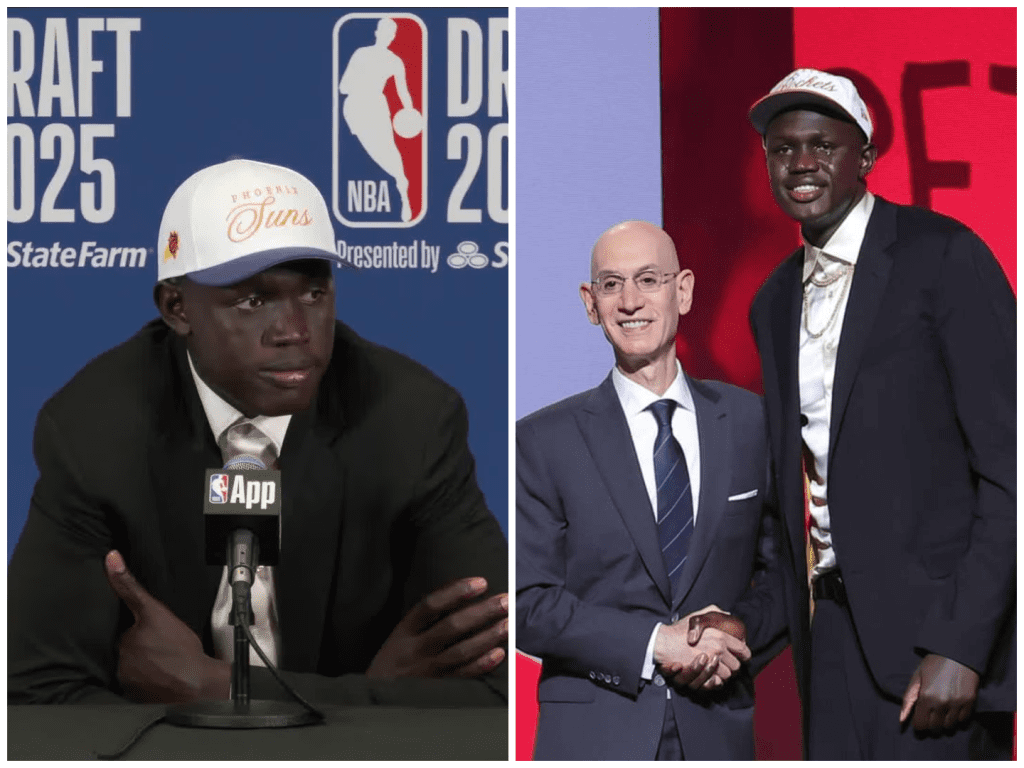
Beyond that, there’s the pressure. Phoenix has a crowded frontcourt and high expectations. They see defensive potential, athletic upside, gatherings for him. But they also know it takes time to learn the league. He may feel invisible in the G League at first, and the pressure to justify a lottery pick will sting. But we’ve already seen him rise—he will fight for every minute.
Watching Khaman on draft night, I thought about scar tissue—both mental and physical. He survived war. He survived hunger. He survived displacement. He survived politics and paperwork. Now he’s entering a business where one bad season or one injury can end everything. And yet, his reaction? Quiet pride, focused intensity. More than tears—it was gratitude and promise. He wants to change his mother’s life. He wants to inspire kids in refugee camps. Not because he’s obligated—but because he believes that magic is possible.
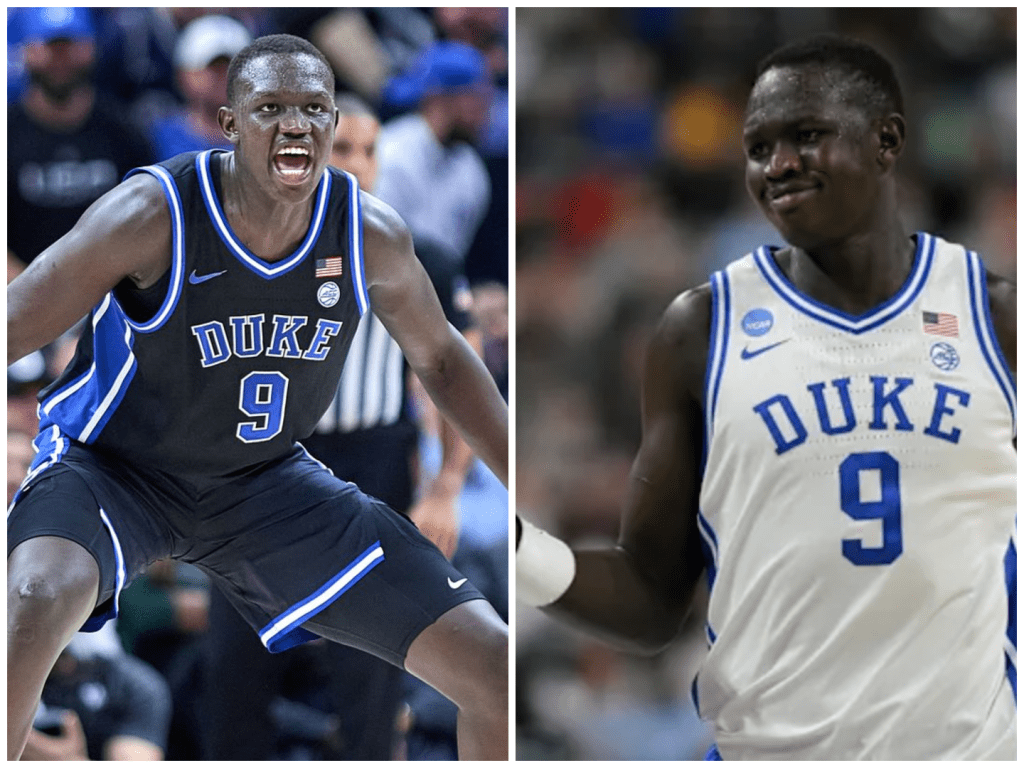
This is the part that sticks with me: he speaks for those who thought dreams were impossible. His presence on an NBA court will speak louder. Even if he averages five points, that’s enough. The symbolism is deeper. If he becomes a staple rotation piece and a champion, people will still talk about how he overcame war and displacement. That’s not narrative fluff. That’s real life.
Khaman’s path isn’t just emotional—it’s a challenge to our own small-scope thinking. It reminds us that life rarely follows a script. That sometimes, all it takes is a stranger’s encouragement—a trainer noticing him on the street—and a support system behind the screens pulling work long before we tune in on TV.